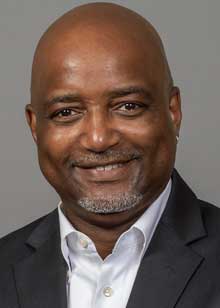In many minority communities, mental illness is viewed as a weakness or personal failing rather than a real medical condition. Let’s change that narrative – together.
Mental Health Stigma in Minority Communities
When it comes to overall well-being, mental health is just as important as physical health. The National Alliance on Mental Illness (NAMI) reported that only one-third of Black people in the U.S. who need mental health care receive it, compared to 50% of white Americans. Mental health stigma refers to negative beliefs people have about mental illness. This stigma can cause shame, fear and discrimination –and ultimately prevent people from seeking the help they need.
Mainstream media tends to treat mental health as a “white” issue, leading to feelings of isolation and shame for people of color. Mental health services are also rarely seen in minority communities – further preventing people from seeking care.
“One of the main reasons for this stigma is the cultural beliefs surrounding mental health,” said Cheryl Wills, MD, Vice Chair for Equity, Diversity & Inclusion and Chief of Child Psychiatry. “In many minority communities, mental illness is viewed as a weakness or a personal failing rather than a real medical condition. Because of this, individuals who suffer from mental health issues may feel ashamed or embarrassed to seek help.”
Here is how we can address and overcome mental health stigma in our communities.
Overcoming Mental Health Stigma
Changing the way people think about mental illness is the first step.
- Education: Teaching people that mental health is just as important as physical health, and that seeking help is a sign of strength and not a weakness.
- Awareness: Talk about the importance of mental health awareness with your family and friends. The more we talk about it, the more it becomes accepted – and the more people will seek out care.
- Access: Opening mental health services in minority communities sends the message that mental health is an essential aspect of health care.
- Support: Counseling and support groups create a safe space where people can share their struggles.
What MetroHealth is Doing
MetroHealth understands there are barriers to accessing mental health care in minority communities, like a lack of access to affordable mental health care, language barriers and a lack of providers. The Institute for H.O.P.E.™ is dedicated to helping people overcome life issues such as unemployment, food insecurity, education and other factors that have a much larger role in shaping someone’s health than just the medical care they receive.
We will continue to lead the effort in bringing together social service agencies to provide uninterrupted behavioral health care, so that our friends, relatives and neighbors who struggle with mental illness or substance use disorder can get the help they need and deserve.
“As a society, we should look at mental health as the same thing as an annual physical or blood pressure check. Mental health is holistic health. I encourage this in my kids and in myself,” said Olusegun Ishmael, MD, MBA, Chief Operating Officer/President of the Hospital Division.
If you or someone you know is struggling, it’s important to start with a primary care provider. To schedule an appointment, call 216-MY-METRO (216-696-3876) or visit www.metrohealth.org/appointments.
If you are experiencing a psychiatric emergency, call the MetroHealth Mobile Crisis Team at 216-623-6888 or go to the nearest emergency department immediately.
Contributor:

Vice Chair for Equity Diversity Inclusion/
Chief of Child Psychiatry
Contributor:

Olusegun Ishmael, MD, MBA
Chief Operating Officer/
President of the Hospital Division











